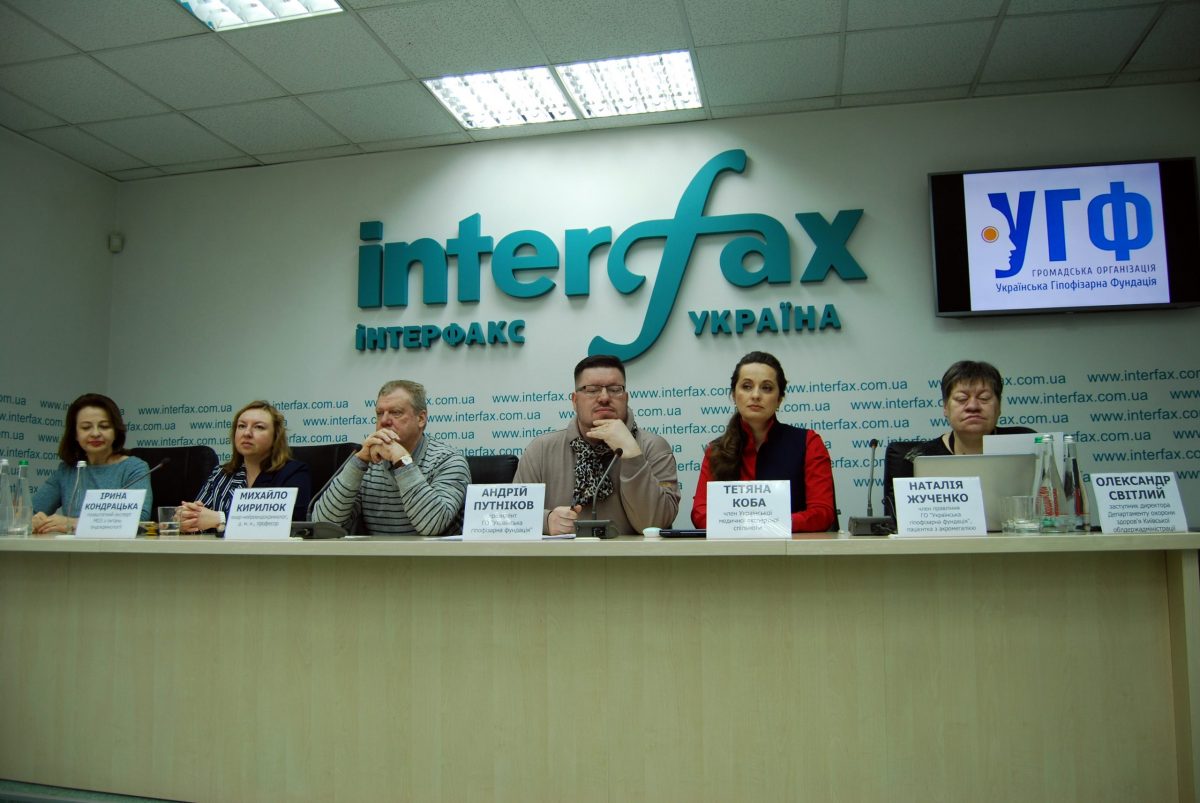
UFuture and InSoft Partners announce the launch of a unique and scaling IT-training program ucode. It was developed based on the Challenge Based Learning methodology, which was initiated by Apple and used at Apple Developer Academy. The training is based on real challenges, overcoming which students alone or in teams find ways to solve everyday problems.
“In today’s world, up-to-date knowledge and skills, multiplied by teamwork, are of paramount importance to people, countries and companies. That is why we strive to make modern basic IT education accessible in Ukraine. Ucode will open up opportunities for you to quickly gain the profession you need and earn a decent living. It’s a core intellectual product in the UNIT.City Innovation Park ecosystem in Kyiv and Kharkiv. But in the future, we and our partners plan to scale it not only in Ukraine but also abroad,” Vasyl Khmelnytsky, founder of UFuture, said.
“In addition to mastering languages and programming techniques, ucode graduates will receive soft skills, effective teamwork skills thanks to peer training, product and entrepreneurial thinking, speeches by practicing IT specialists from leading Ukrainian and foreign companies, a portfolio of more than 10 projects and guaranteed employment,” Vitaly Gorovoy, founder of InSoft Partners, said.
Anyone over the age of 17 years can join the program, and with a level of English not lower than Intermediate, regardless of the level of education and profession. The training starts on March 30 in Kyiv and Kharkiv. The first set of programs is designed for 400 students. Training will be conducted on a paid basis and will last 16 months. More information is available at the following link.
ADDITIONAL INFORMATION
UFuture — is a holding company of Ukrainian entrepreneur Vasyl Khmelnytsky that integrates his business and impact-investment projects. The company has a diversified portfolio of assets in the fields of real estate, infrastructure, industry, renewable energy, pharmaceuticals, and IT.
InSoft Partners — a niche investment management company that focuses on the IT business. Having a team with extensive experience in the development of IT companies, InSoft Partners joins the operating activities of portfolio companies, contributing to their active growth (through lead generation, changing business processes, etc.).

The State Agency of Automobile Roads of Ukraine (Ukravtodor) and the Turkish company Onur Taahhut Tasimacilik İnsaat Ticaret Ve Sanayi Anonim Sirketi (Ankara) have signed a contract for the construction of a bridge in Zaporizhia. According to an Interfax-Ukraine correspondent, the corresponding document was signed by Ukravtodor Head Oleksandr Kubrakov and the representatives of Onur Taahhut at a meeting on March 3.
“We expect that work will begin next week. The agreement that was signed is designed for four years, but we have our internal terms … We expect it to be two years,” Kubrakov said after the signing ceremony.
As reported, the Turkish company Onur Taahhut Tasimacilik İnsaat Ticaret Ve Sanayi Anonim Sirketi won a tender for the construction of a bridge in Zaporizhia with an offer of UAH 11.918 billion.
Onur Taahhut was founded in 1991. It is engaged in construction of roads, bridges, junctions, structures and road reconstruction work. The company has successfully implemented important projects in Croatia, Ukraine, Tunisia, Moldova, Oman, Equatorial Guinea, and Turkmenistan. It has experience in the implementation of construction and assembly works at infrastructure facilities throughout Ukraine.

Patients with acromegaly demand that a register of people with orphan (rare) diseases be created on the basis of the eHealth system and their disease be included to budget-funded programs.
They said this during a press conference, which was hosted by the Interfax-Ukraine News Agency on Tuesday.
“It is necessary to create a register of people with orphan diseases on the basis of the eHealth system, develop and approve a patient pathway, create a specific program on acromegaly and a separate budget for it. It should have a package approach, including surgery procedures, beam therapy and medication, as well as training of family doctors (for dealing with acromegaly). We will also demand that our non-governmental organization be included to all permanent working groups for procurement of medicines,” President of NGO Ukrainian Pituitary Foundation Andriy Putnikov said.
He also noted that there is a need for assessment of medical procedures as an effective instrument for treatment using innovative solutions within the framework of limited financing.

“Despite the law and instruction of the Cabinet of Ministers No. 160 dated March 31, 2015, which provide for guarantees for people with acromegaly regarding regular lifetime treatment, in fact such patients are not provided in full or not provided at all with medicines. The reason is the lack of the state register, hence the majority of acromegaly cases are treated without a system approach and ineffectively,” he said.
Putnikov also complained about the absence of multidisciplinary clinics and the lack of domestic standards for diagnostics and treatment of acromegaly.
In turn, endocrinology expert of the Health Ministry of Ukraine Iryna Kondratska said that it is necessary to train family doctors as patients with acromegaly contact them first in case of necessity.
“Nobody diagnoses acromegaly. The problem is that there is no awareness and information. We have a disastrous situation – 844 patients with acromegaly are officially registered in Ukraine today,” she said.
Kondratska added that there are successful cases of the programs for treatment of this disease in Zakarpattia regions and Kyiv.
At the same time, member of the Ukrainian medical expert community Tetiana Koba said that assessment of medical procedures could be used as an instrument for doctors to purchase necessary medicines for treatment of the disease in regions.
“We have only one solution – either instruction No. 333 (currently No. 1172 dated December 4, 2019) excluding the grounds for assessment of medical procedures should be amended or an instruction or a method of assessing medical procedures should be developed as soon as possible. We have to give doctors an instrument using which they could buy necessary medicines at the local or national level,” he said.
Doctor of Medicine, Professor Mykhailo Kyryliuk, who is a neuroendocrinology expert, emphasized that treatment of a patient with acromegaly could cost the government at least UAH 8,000 per month.
“For example, the average cost of treatment of such a patient in the United States is $24,000 per annum, of which $17,000 [is spent] on medical services and the rest – on medicines. […] Our government cannot allocate such money. The minimum cost of a surgery for such a case is UAH 45,000,” he said.
Putnikov also noted that today acromegaly patients pay from $3,000 to $5,000 for surgery at the Neurosurgery Institute in Kyiv.

Primary registrations of new passenger cars in Ukraine in February grew by 21% compared to February 2019, to almost 7,000 units, which is slightly less than in January 2019 (7,100 units), the Ukrautoprom association has reported. According to the data on the website, Renault became the leader of registrations, as in February of 2019, surpassing Toyota, the leader in January 2020, with an increase in sales by almost 68% compared to February of 2019, to 1,223 units. In turn, Toyota increased the sale of cars by 52%, to 1,089 units.
In January 2020, the third position from the fifth took KIA, which in February of 2019 also occupied the third line of the rating. However, the registration of KIA fell by 20%, to 479 units in February.
Skoda takes the fourth place with 368 cars (4% more compared with February 2019), while Nissan closes the top five with 9% down in primary registrations, to 361 cars.
The compact crossover Toyota RAV4 again became the month bestseller, as 482 customers chose this model in February.
As reported, with reference to the data of Ukrautoprom, in 2018 new passenger car market could not exceed 2017, as primary registrations decreased by 0.6%, to 81,800 units.
However, in January 2020, according to Ukrautoprom, the market showed a 35% increase compared to January 2019, to 7,100 units. At the same time, 28,300 units of used imported cars were registered.
Market experts suggest that in 2020 the new passenger car market will be able to reach or exceed the mark of 100,000 cars sold.

The total state debt of Ukraine in January 2020, due to the weakening of the hryvnia exchange rate by 5.2%, in U.S. dollar terms decreased by 1.1%, or by $940 million, to $83.43 billion, the Finance Ministry has said.
According to its data, at the same time, this devaluation led to an increase in the national debt in hryvnias by 4%, or by UAH 80.72 billion, to UAH 2.079 trillion.
The Ministry of Finance noted that in January it held three auctions for the placement of government domestic loan bonds, at which it raised UAH 18.5 billion at the rates that by the end of the month fell below 10% per annum, and also placed eurobonds for EUR 1.25 billion at 4.375%.
State budget expenditures for the repayment of public debt in January 2020 amounted to UAH 31.6 billion, for servicing some UAH 4.4 billion.
In January, the share of obligations in dollars in the general structure of the state debt of Ukraine decreased from 38.9% to 38.5%, in hryvnias from 36.7% to 35.25%, while in euros it increased from 10.2% to 11.85%.

The Business Expectations Index, calculated by the National Bank of Ukraine, in February rose immediately by 10.9 points, to 51.2 points, which is above the neutral value of 50 points and signals the prevalence of optimistic business expectations.
“Businesses have significantly improved expectations regarding their economic results. The growth of the index was due to improved sentiment regarding the economic situation at industrial enterprises and the service sector,” the NBU said.
The central bank said that the index in the industry grew by 9.4 points, to 53.1, in services by 11.7 points, to 52.8 and in trade by 13.6 points, to 49.9.
At the same time, a slight decrease by 0.1 points, to 34.2 points was recorded in construction.
According to its data, after four months of pessimistic sentiment, industrial enterprises expect growth compared to the previous month (growth from 43.7 to 53.1). Respondents significantly improved their expectations both in terms of production volumes and in the volume of new orders for products, including export orders (63.3 points, 62 points and 53.6 points respectively, against 39.8, 44.1 and 40.2 points a month earlier).
An increase in the number of employees so far is expected only by service companies. At the same time, respondents from industrial and trade enterprises had somewhat more restrained estimates of the reduction in the number of employees compared to January.